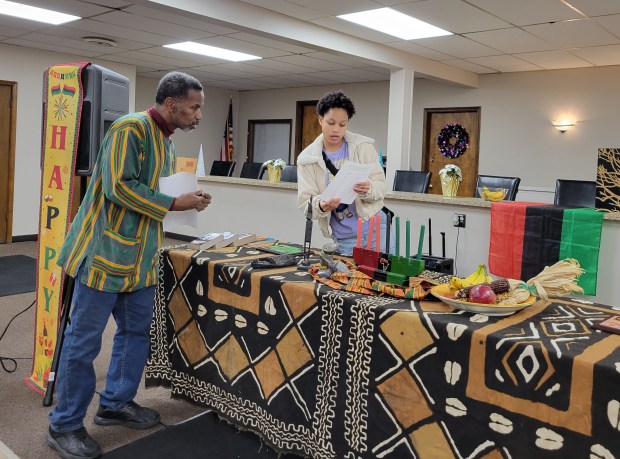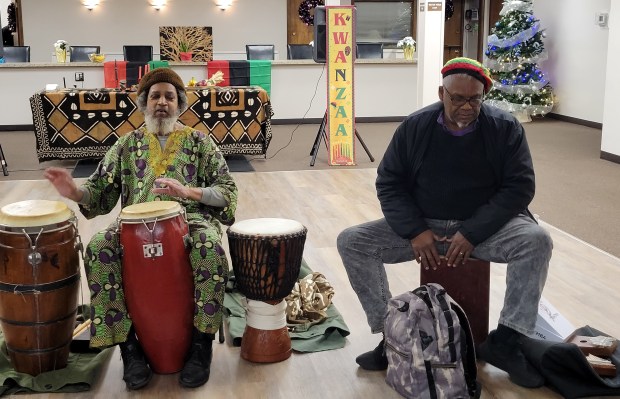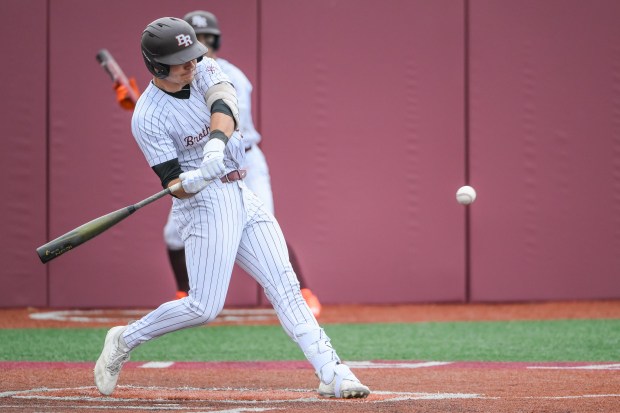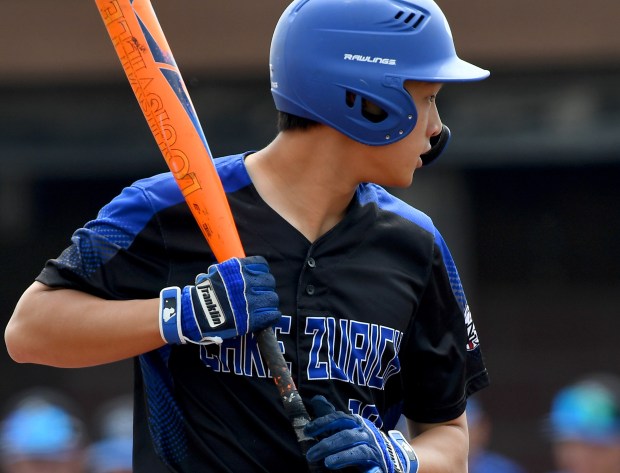Music and pride filled the Calumet Township Multipurpose Center Thursday evening as a smaller, yet no less meaningful kick-off to Kwanzaa commenced.
As positive music uplifted the group and fortified a canvas on which the Thorns & Roses Dance Troupe painted a picture through African dance, the conversation took a serious turn as speakers looked to today’s Rap and R&B and how much worse it’s gotten even in the last five years.
Gary attorney Angela Lockett said sees the effects of it every day.
“I’m just over 50, so I was in that first wave with NWA and Ice Cube, and I believed in it back then,” Lockett said to the group of more than 30. “Now, when you look at the debauchery, these kids feel like they don’t have to work hard or that they’re not even in the equation, so why try.
“Something has to happen because it’s very deliberate, this negativity toward Black youth, and it’s going to get worse.”
“Today, our music hates us,” added activist and celebration co-organizer Kwabena Rasuli. “We are just about a quarter of the way through the century, and we cannot have another 25 years of this.”
Created in 1966 as an African American and Pan-African holiday to celebrate history, values and family, a combination of children and the city’s well-known entities once again took attendees through its seven days: Umoja, or unity; Kujichagulia, or self-determination; Ujima, or collective work and responsibility; Ujamaa, or cooperative economics; Nia, or purpose; Kuumba, or creativity; and Imani, or faith. While its principles are to what everyone needs to aspire to every day, the holiday itself is somewhat controversial in certain circles, Rasuli said.
“When Kwanzaa first started, there was disagreement between the Black Panthers and Organization US — Everyone agreed on the principles, but the Black Panthers didn’t want to ascribe them to just one holiday, while Organization US believed there should be a holiday to showcase the principles as well as living them every day. It was an issue of leadership that (the U.S. Government) made sure to foment,” he said. “We don’t besmirch any Black Panther for not wanting to recognize Kwanzaa, but we need the sort of guidance Kwanzaa brings, and the ritual of it is important.”

Teacher and entrepreneur McKenya Dilworth-Smith reminded the crowd that Gary needs to keep its money in Gary for the city and its people to succeed.
“It’s a fallacy that we can’t support each other, so stop saying it! Stop saying it,” Dilworth Smith said. “When I was a kid, if we wanted something and it couldn’t be found at The Village, we weren’t getting it. Now, we’ll go all the way to Route 30 when our dollars need to change three, four, five times right here.”
Another speaker, Larry Smith, added that the community needs to incorporate its men more while restoring its vision.
“We know that some men aren’t here because of incarceration or are just passed over for whatever reason, but we need to have more ‘neighborhood dads,’” he said. “Men are vital to the community, and it’s OK to be a neighborhood dad or stepdad.”
Mariah Smith, 13, of Gary, attended the celebration with her mom. She was chosen to light the very first Kwanzaa candle signifying Umoja.
“I read a little beforehand and I know that there are seven attributes, but the one I like the most is Kuumba,” she said. “Creativity speaks to me; when I was little, I was always dancing or making little things.”
Michelle L. Quinn is a freelance reporter for the Post-Tribune.





